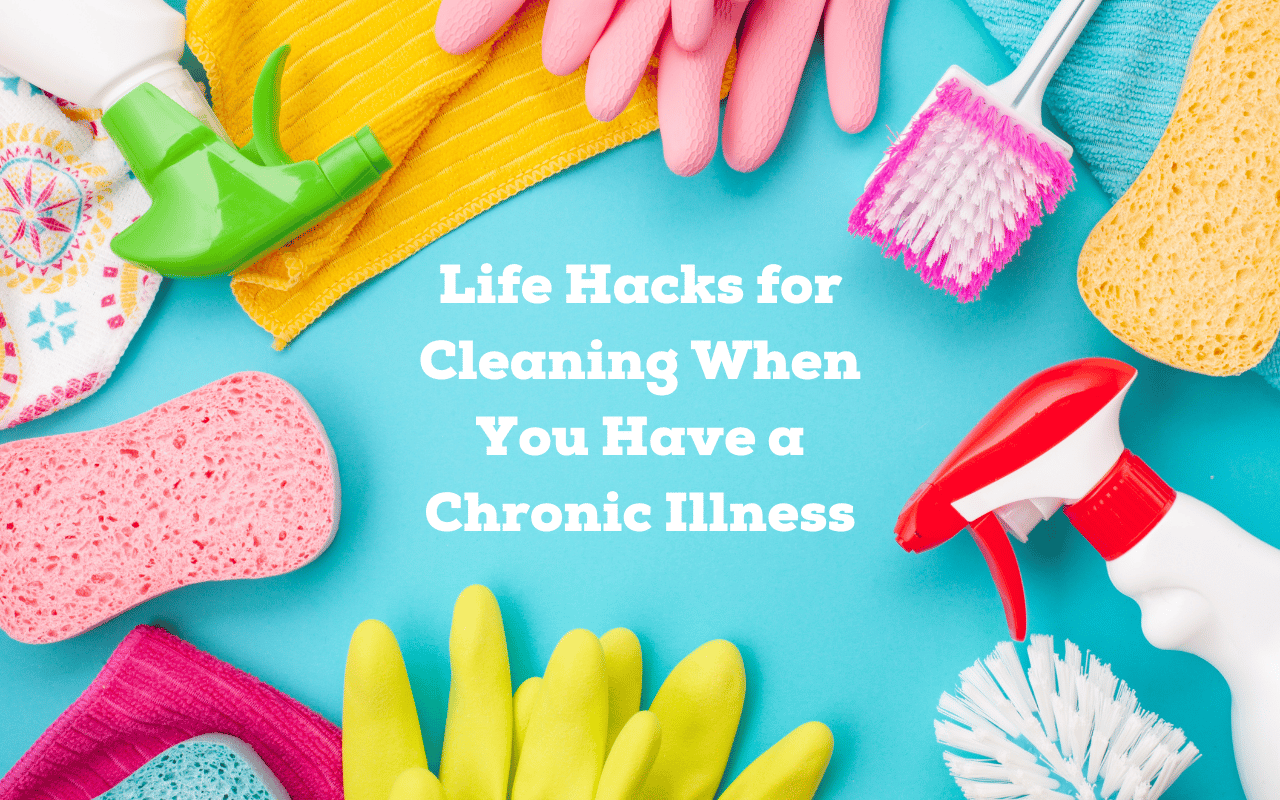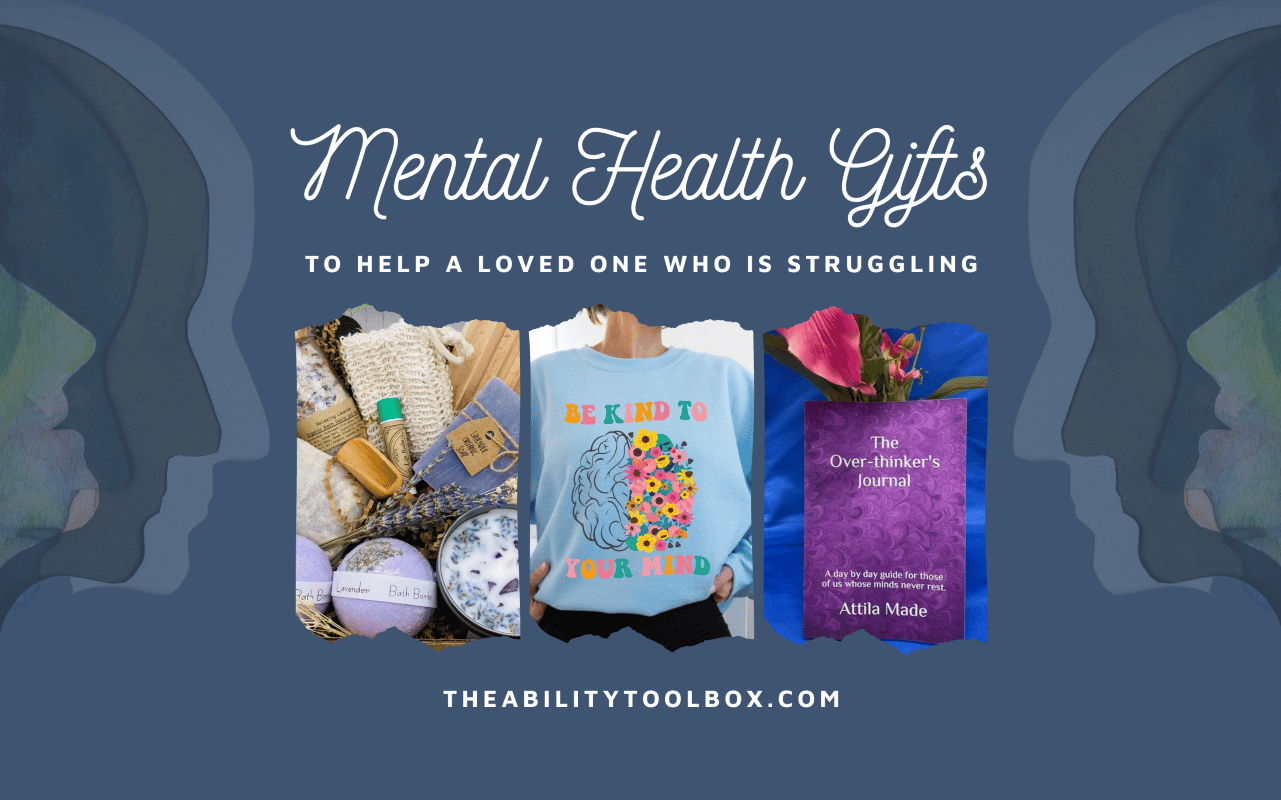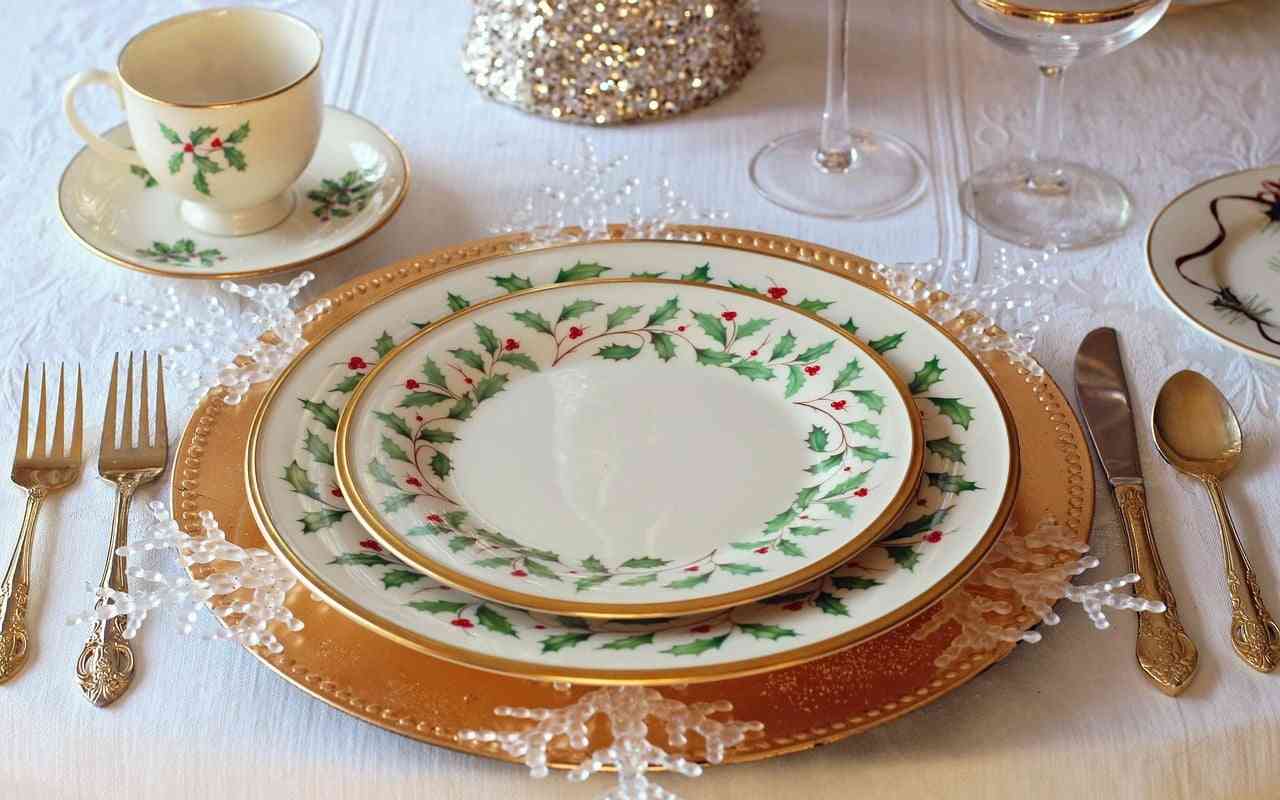
Living with debilitating chronic illness symptoms such as pain and fatigue can make it harder to clean your house. You may not be able to do seemingly routine tasks as well as you once could, and if your home has become messy as a result, it can feel overwhelming. This article will give you some tips and tools that can make cleaning with chronic illness a little easier — and help you get more done in less time while using fewer spoons.
Tips for Cleaning with Chronic Illness
Try the u0022box methodu0022 or u0022bag methodu0022 to organize a room when chronic illness has delayed cleaning.
Do you have lots of items scattered around a room that actually belong somewhere else? I often have this problem, especially when my fibromyalgia causes chronic fatigue and I don't have the spoons to put things away. When I find enough energy for cleaning with chronic illness, I use a bags and boxes strategy to reduce the number of back-and-forth trips I have to make between rooms. Here's how it works:
- I assembled an “organizing kit” — a plastic box filled with reusable shopping bags and some of those foldable storage cubes. I also include a folding reacher that's reserved just for this purpose, so it won't get misplaced. If the squeeze mechanism is too difficult for you to use (for example, if you have arthritic hands) try scissor tongs instead. I bring this kit into a messy room and place it on a bed or table, so I don't have to bend.
- I put a few of the reusable shopping bags over my arm, one bag for each room other than the one I'm in. Sometimes these are all you need, but if you're organizing larger items or within a room, the storage cubes may be easier to use.
- I walk around the room, collecting misplaced items and placing them in the bag or cube I've designated for the place where they belong. Then I carry all the bags from the room and put the items away. If one or more of the bags gets too heavy, I can set it down, but I'll still make fewer trips between rooms using this method.
- I put the bags and cubes back in the box to use again next time. Occasionally, one of the bags gets yucky on the inside, for example, if I cleaned up dirty dishes, and then I either throw it in the washing machine or throw it away.
Here's everything you need to create an organizing kit of your own!
Create a cleaning list, but don't pressure yourself to do more than your chronically ill body can handle.
Make a to-do list to prioritize what to clean — but don't feel guilty if you can't get it done right away. One of the symptoms many people with chronic illnesses of all kinds struggle with is brain fog. It can be really hard to focus and remember things. I've lost count of how many times I was having a good day with my health, decided to clean and organize my house, and then couldn't remember what needed to be done most! I learned that when I think of things to do, I need to write them down right away. Enter the to-do list. I like this to-do notepad because it doesn't specify days of the week or deadlines, so the list reminds you without pressuring you. Plus it's magnetic, so it sticks to the fridge for easy access.
Sit while cleaning with chronic illness to reduce pain and fatigue.
Cleaning with chronic illness can be exhausting and painful because you're on your feet so much. Luckily, this problem has an easy solution — sit! Any chair will do, but a chair or stool on wheels will let you scoot a few inches or feet or even from room to room rather than having to pick up a chair or drag it around.
Depending on your household routine, you might want to use a counter-height rolling chair for cooking and some cleaning, and a low rolling chair (like those used in nail salons) for cleaning near the floor without bending.
Use cleaning tools with long handles.
Bending and reaching are often key to housecleaning, yet difficult for many people with chronic pain and fatigue. One easy way to alleviate a lot of pain-inducing movement is to buy cleaning tools with long handles. The Swiffer duster is my favorite, and I use it in some unconventional ways, such as cleaning my computer screen, desk, and corners. It bends to help you clean hard-to-reach areas without aggravating chronic illness symptoms.
OXO Good Grips products are a lifesaver for people with a chronic illness or disability who want more independence with cleaning, cooking, and other household tasks. I like how their products are special without being “special” — they look nice and help everybody. I use this tub and tile scrubber all the time and it makes a hard job easier.
Keeping your house clean as a chronic illness warrior is tiring u002du002d let robots do it for you!
As a spoonie, I am so grateful for technology. I can't imagine how hard it must have been to live with chronic illness before the internet and all the devices that help us live comfortably and connect with others even when chronic pain and fatigue keep us at home. I'm also kind of a neat freak, which doesn't go well with needing to sleep 10 hours a night. I don't have the time or energy to keep my house clean — not without help, anyway! Enter my besties, the robotic vacuum and robotic mop. If I could only recommend one item on this list, it would be a self-emptying Roomba. They're expensive, but worth every penny. If that's not in the budget, and/or you don't mind emptying your robo-vac more often, there are cheaper options available too.
If chronic illness makes washing dishes difficult, try these solutions.
I don't know about you, but one of the most depressing things for me as a chronic illness endurer is having a bunch of dirty dishes scattered around or piled up in the sink. They start to smell and they make me feel like a failure as a human even though I remind myself I had to choose between showering and dishes today, because I didn't have the energy to do both. But this problem is mostly in the past for me now, because I came up with some creative alternatives.
Simplify food storage
First, I bought food storage containers that are easy to eat out of, so I'm not getting an extra plate or bowl dirty at every meal. I also use bento boxes so I can put together meals once or twice a week and then just grab them out of the fridge when I'm hungry. Be sure to buy microwave-safe and dishwasher-safe containers so you don't have to transfer food for reheating. If brain fog makes it hard to remember what you have available to eat, buy clear storage containers.
No dishwasher? No problem!
Do you live in an apartment without a dishwasher? It doesn't have to stay that way. Countertop dishwashers are compact yet effective, and they're perfect for a single spoonie or a couple. They are a little on the expensive side, but worth every penny. A countertop dishwasher makes the perfect gift for a friend or a relative who is on disability benefits and really needs help cleaning in the kitchen but can't afford one.
Try these laundry hacks on bad chronic illness symptom days.
If pain and fatigue are making it hard to keep up with the laundry, try these tips.
- Use a rolling laundry cart with a folding/ironing surface. This will make it much easier to transport dirty clothes to the laundry room of your home or apartment building without you needing to do any lifting.
- Use laundry pods instead of liquid or powder detergent, so you can just remove them one by one when needed instead of having to lift and carry the whole heavy bottle.
- If you are buying a new washer and dryer, choose front-loading models. If you have enough space, side-by-side models with storage drawers underneath are at the easiest height to minimize bending over.
- If you live in an apartment without washer and dryer hookups and your chronic illness makes it difficult to go to the laundry room or laundromat, don't despair! Portable washing machines that hook up to your sink are much cheaper than a standard washer and will handle clothes and some blankets and towels. Portable dryers are also available, or you can use a drying rack with a fan.
Do you have tips for cleaning with a chronic illness?
Please share them with our community in the comments.
Coffee junkie. Spoonie. Writer about all things chronic illness and mental health. Friend of animals everywhere.
























